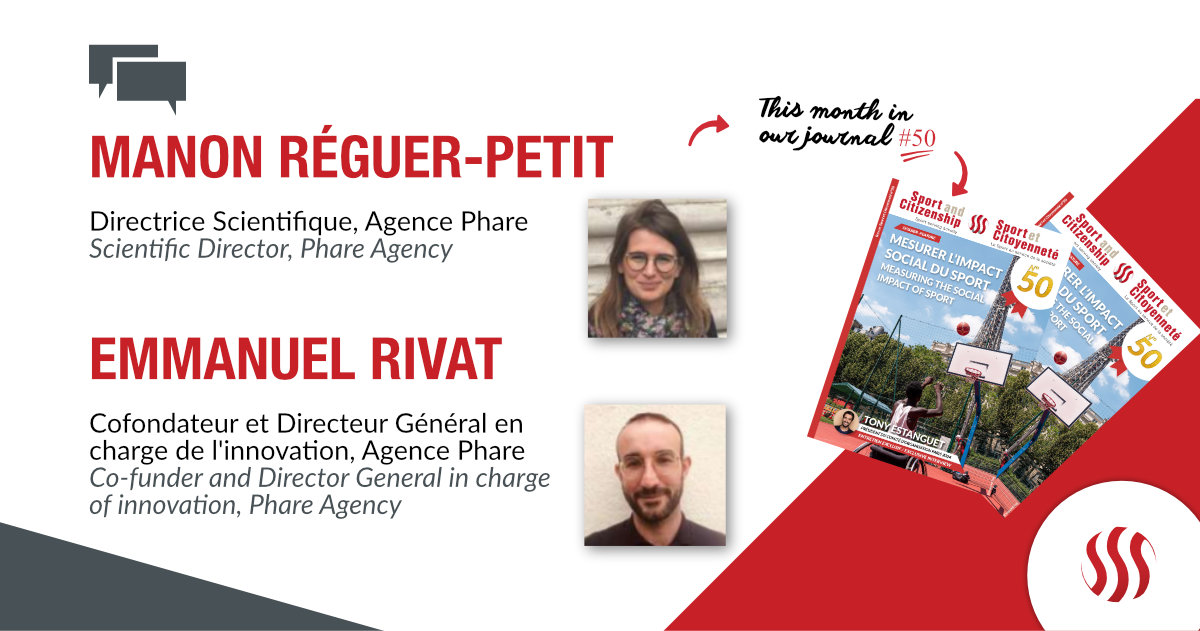
Evaluating social impact: at last, a useful approach for sport projects
Evaluating social impact: at last, a useful approach for sport projects
Too often seen as an instrument for control by the public authorities and as a communications tool by project leaders, measuring social impact can also have a frequently-underestimated strategic objective, in helping to guide sport projects
 Manon REGUER-PETIT
Manon REGUER-PETIT
Scientific Director, Phare Agency*
 Emmanuel RIVAT
Emmanuel RIVAT
Co-founder and Director General in charge of innovation, Phare Agency*
For social impact measurement to meet this strategic objective, it needs to take place in a period favourable to change. It should not be tacked on to an approach afterwards, once the project has already come to an end, but should be an integral part of its development. By advising the Paris 2024 “Impact and Legacy” managers, the Phare Agency helped them develop their strategy (drawing up and fixing key objectives).
Measuring, as a means of gathering knowledge, can then be a strategic management tool when the methods chosen are adapted to the nature of the project. On this point, we are firmly convinced that qualitative and quantitative methods are usually complementary. When quantitative methods make it possible to quantify the impacts, qualitative methods show the transformative process and the conditions necessary for attaining the impact. The qualitative methods used by the Phare Agency in the context of the FNCIDFF’s innovative “TouteSport” programme made it possible not only to show the impact of the programme on empowering women and integrating them socially and professionally, but also to show the transformation process at work and the conditions needed for sport to be an effective tool for empowering and integrating women.
“A strategic tool for management and continuous improvement”
Discussing the results and what has been learnt from measuring social impact is a powerful driving force for activating a varied network of partnerships. The impact never comes from a single organisation: it is often shared, concerted and mutualised. Sharing the results of measuring represents a major challenge for sport stakeholders to be able to create projects with a social impact and collaborative approaches with other sectors (social action, combatting discrimination and so on). In these conditions, the sport ecosystem could become an even more powerful actor in social change, recognised by the public authorities.
Measuring social impact plays an important role in major strategic issues for developing sport projects as long as it is not solely used as a tool for control, reporting or communications, but as a strategic tool for management and continuous improvement of social impact. It is in this perspective that it can contribute to ensuring access to sport for everybody, and making sport a means to empowerment, integration and social inclusion.
*Created in 2013, the Phare Agency specialises in measuring social impact and public policies. Scientific, independent and engaged, it uses social science methods to run studies and breathe new life into support and advice methods.
